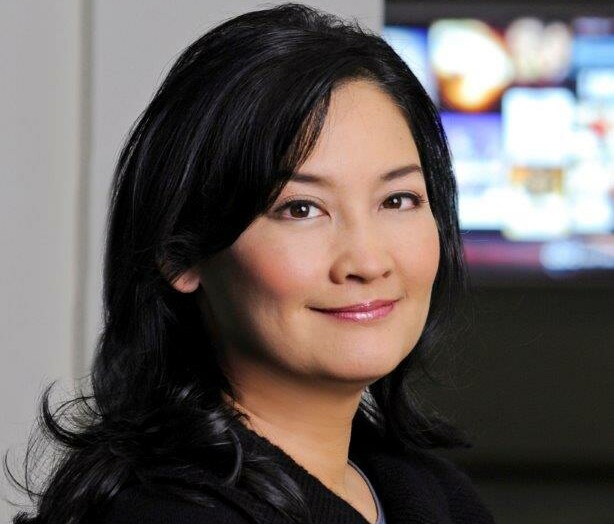ABC's Geri Wang To Be Honored By Reisenbach Foundation

Geri Wang started as a physical therapy major in college but later changed to communications. Upon graduation she landed her first job working for Helen Johnston at Grey Advertising as a media research analyst. From there Geri was recruited by ABC, where she excelled. She is currently President of Sales, leading a team of nearly 300, and she is responsible for advertising sales and integrated marketing across the entire ABC portfolio including ABC Primetime, Daytime, News, Late-Night and Digital; the Disney/ABC Domestic Television Syndication Group; Fusion, and ABC Sales Development.
(Editor's Note: Geriwill be honored by the John A. Reisenbach Foundation on December 1, 2015 at the foundation's annual cocktail party honoring those who make a contribution to a safer and better New York City. It is a tribute to John A. Reisenbach, a young and very popular media and television industry executive who was the victim of a random and senseless murder in Greenwich Village in 1990.)
In the following interview, Geri talks about the media landscape, ABC’s portfolio of content, the importance of research, data and analytics, the future of media with cross platform measurement and connected TVs and how mentoring is an important contribution to the future of the industry.
Charlene Weisler: Sales has become increasingly dependent on research and data. What is your opinion of that trend?
Geri Wang: Sales has always depended on research and data but now it is even more critical. I love the fact that data is so important. I am a self-professed research and numbers fanatic. We use data and analytical skills to help identify and activate new business metrics in the evolving media environment.
It is a marriage of art and science. Sales has always interpreted data in order to discover who our audience is and the profile of that audience, and to decide the right media choice for our advertisers. Now there is even more data available to us that is targeted and precise. Data is my first love and the foundation of everything we do.
Charlene: I have noticed that many research departments have been displaced by data analytics departments.
Geri: I wouldn’t say that. Data analytics is a complementary team to research and they work side by side. Research has not been displaced. But we are expanding and developing a new skill set and are building our corporate muscle.
Charlene: Is there a future for traditional research?
Geri: I think that the word “traditional” has become pejorative. The ground is moving under our feet. Everything has to evolve and we all have to innovate. How we sell, research, analyze through targeting and automating allows for bigger possibilities.
Charlene: How would you say the sales function has changed since you first entered the industry?
Geri: We are building an organization where everyone is expanding their skill set. We sell video on all platforms and on all screens. I’d like to think we have evolved to a more consultative, more idea-driven solution conversation with our advertisers. The best partnerships with our clients involve ideas. We started in sales as great negotiators and account people but now we are marketing partners in such diverse areas as integrated marketing, sponsorship, pro-mercials, product placement, traditional brand marketing, etc. In certain cases we get to be part of the strategic conversation about how a client is thinking about their business and included in short term activation and a long term strategic roadmap of where a brand is headed.
Charlene: How important is data to your job? What data sets are most important?
Geri: It is critical. Our business intelligence is based on micro and macro sets of data. We use Nielsen which is the traditional syndicated research company and now we have many, many more partners. We are getting smarter in how we are using data for both internal and external decision making.
Nielsen is the currency so we want to make sure that their measurement and methodology is keeping pace with consumer behavior. There are cool things about all of the new datasets which we can append for better and more informed decisions for clients.
Charlene: Do you think we will get to a standard cross platform measurement within the next two years? Why or why not?
Geri: This is the Holy Grail: To be able to measure total impressions on every screen. We don’t care where you watch. We are selling units and impressions. I hope that we can get to a standard cross platform measurement. But hope is not a strategy. We are working closely with multiple partners to get to that goal. Also, we need much better media models that can talk about attribution. It is critical for the business.
Charlene: How will connected TVs impact your side of the business?
Geri: It is going to be a great viewer experience and value proposition because of the better user interface. High quality video companies like ABC will be the winners. The future is less about channels and more about programming services. We have cool apps for all of our properties and have been in that business since day one.
Charlene: Where do you see programmatic going for TV -- local and national, broadcast and cable?
Geri: We have the privilege and benefit of high demand. It depends on how you define programmatic. If programmatic means dumping your low value inventory, then we are not in that business. If it means automatic buying and selling, we are in that. If it means long form video with more precise targeting, we are in it. The industry is headed there.
Charlene: Can you give me some predictions of how the media landscape will look 3-5 years from now?
Geri: Our own organization has begun to prepare for the future by offering more consultative services and we will continue to expand that. We are also hyper focused on reaching the consumer in a technologically sophisticated way. As we look at consumer behavior with its infinite choices, we see a shift in traditional viewing. But we know that viewers will still seek out the best entertainment experiences.
I have seen great client collaboration in my career. We at ABC have moved beyond the broadcast model and into such things as in-season stacking, an interest in Hulu and a Sony Vue deal. At the end of the day you have to offer the consumer and the viewer the entertainment experience they want. Period.
Charlene: I know that you are involved in mentorship. Can you give me more details on your work in that area?
Geri: I mentor young people through both the National Association of Multi-Ethnicity in Communication and the ABC Media Networks programs. I have had unbelievable and supportive mentors for my entire career. Some were my peers and some were people I worked for. It is the most generous and greatest gift, all of us should be able to give.
Charlene: What advice would you give a young graduate today regarding a career in media?
Geri: Media is the most fascinating, dynamic and interesting industry and offers a big fun quotient, alongside complex challenges that are phenomenal puzzles to solve. I cannot think of another industry I would rather work for.
The opinions and points of view expressed in this commentary are exclusively the views of the author and do not necessarily represent the views of MediaVillage/MyersBizNet management or associated bloggers.


